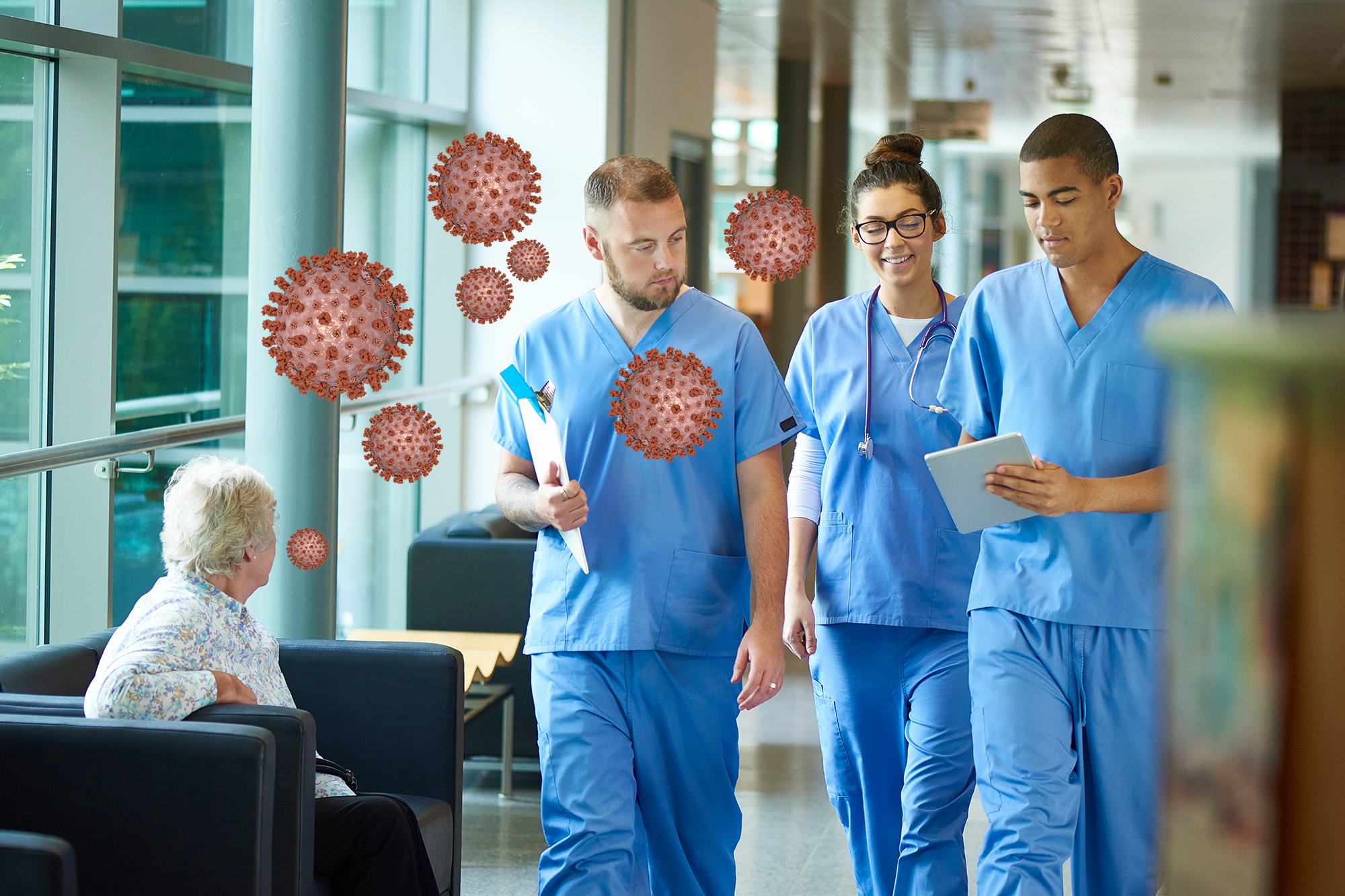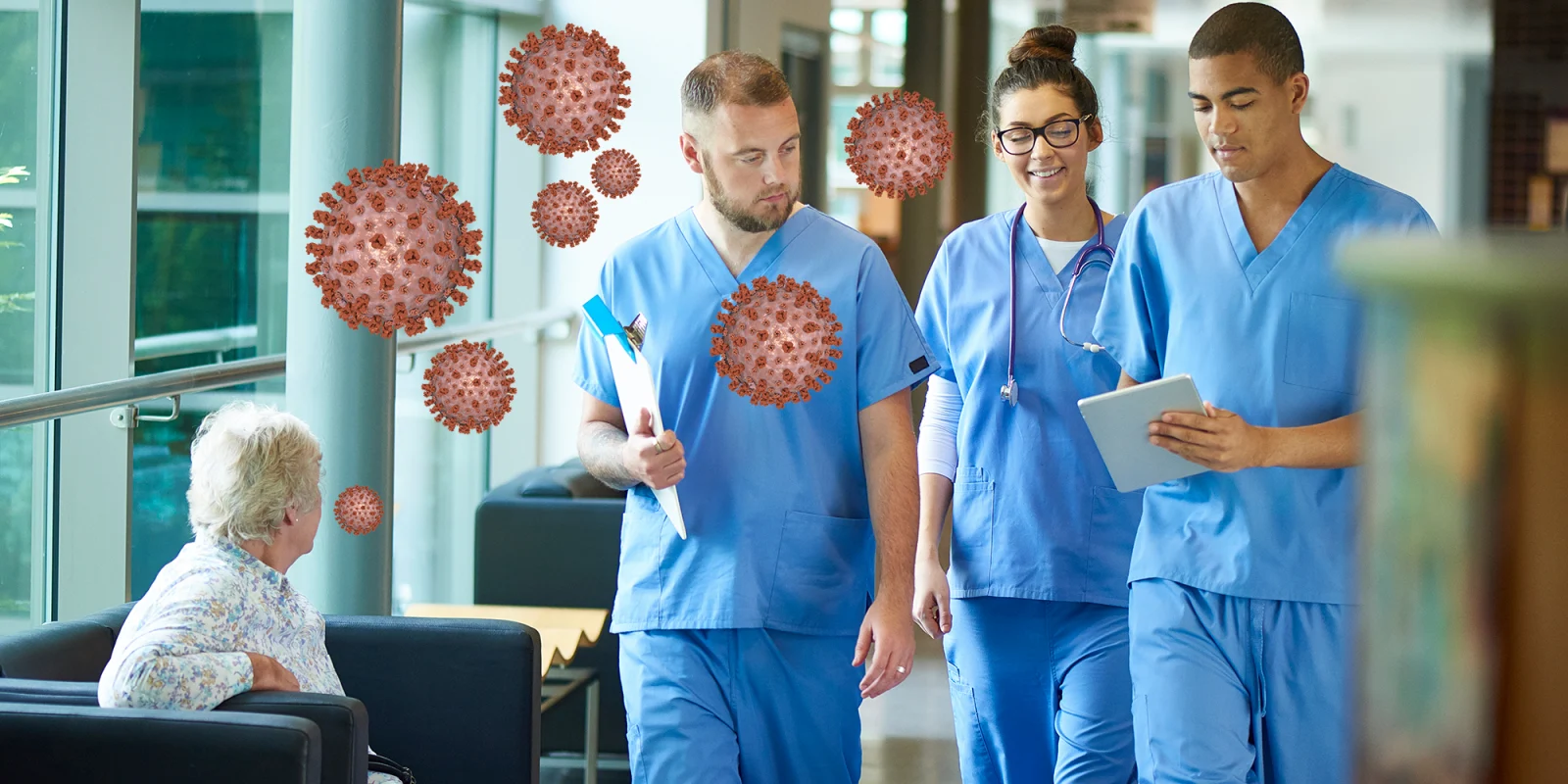 I am nearing the end of my third year of medical school. The experience has been both difficult and rewarding, with a very steep learning curve. Medical textbooks have their place, of course, but learning clinical medicine happens through practice. This is rather evident even to those not in the medical field.
I am nearing the end of my third year of medical school. The experience has been both difficult and rewarding, with a very steep learning curve. Medical textbooks have their place, of course, but learning clinical medicine happens through practice. This is rather evident even to those not in the medical field.
However, a pandemic is upon us, and it is a real threat to our global civilization. The new coronavirus, which causes a disease now known as COVID-19, seems to be spreading easily and sustainably in affected communities. The virus’ effect on the global economy is already staggering and we are still only in the initial phases of its potential impact.
It has become clear that all people worldwide must take action in this early phase of the pandemic to slow the spread as much as possible. However inconvenient or poorly-timed this outbreak may seem, controlling its spread should take priority over just about everything else in our lives. Schools across the United States should be closed immediately. Conferences, concerts, and sporting events should be canceled. Working from home should be encouraged. And, rather obviously, medical, nursing, and clinical students should be ordered to stay home from their clinical responsibilities. There is no question that this action will put a damper on clinical education. But as clinical students, we should understand better than most the threat that we pose to everyone by going about our business as usual. Hand-washing, mask-wearing, and vigilance are not enough. We still have to live and breathe — and that presents opportunities for this virus to spread.
Medical students – and clinical students, generally – are a valued part of the care team. We often take histories, write notes, and contribute to the ultimate patient care plan. We like to think we make a difference, and sometimes we really do. But let’s get real. We are a nonessential part of patient care, and our presence adds an unnecessary potential vector for the spread of viruses. And this new virus is extremely dangerous.
Another major element to consider is that young people may appear asymptomatic or only mildly affected by this new coronavirus (though cases of truly asymptomatic infection are probably rare). Over the past two days, I have seen four cases of the common cold and maybe felt a mild dryness in my throat last night. Could I be a vector? I am certainly at high risk, and we have no idea how many people in New Jersey have this new virus because right now, as testing is limited. It is very unlikely, but how many more days should I let pass until “very unlikely” becomes “somewhat unlikely”?
Viruses spread exponentially, and we know this virus has explosive potential (see Italy). This means early self-isolation will have a much larger impact on slowing the spread. That is, the sooner an action is taken, the more effective it will be. And even if it is inevitable that a certain percentage of the population eventually gets this new coronavirus, slowing its spread really, really matters. The likelihood of running out of ventilators nationwide is high, leading to a horrible rationing of care scenario we have never experienced. However inconvenient slowing the spread of this virus is now, it will be far worse in every way, including economically, if we take the exact same actions at a later date.
Clinical students can make a significant impact on the spread of this virus both positively and negatively. By staying away from the hospital or clinic, we reduce the number of contacts a patient has. By going to the clinic, we can potentially become infected and infect every other patient, health care worker, or person we share air space with during the following 13+ days. That is, clinical students have the potential to become super infectors. I think we should do everything we can to prevent that scenario.
I wish I had a more nuanced, insightful, compelling, and persuasive case to make — but I do not. Of course, the American media is overly sensational and easy to dismiss. Every day there is a new crisis. But one advantage to the entertainment-based 24-hour news cycle is that when a real crisis happens, information moves quickly. By almost all news accounts, it is time to take this situation seriously.
I believe medical students, in solidarity with other clinical students around the country and around the world, should stay away from the hospital and excuse themselves from clinical care. We are highly-educated adults and can make these decisions for ourselves. I encourage students not to wait for their cumbersome administrations to have their obligatory meetings before they ultimately decide this is the only rational course of action and should have been done weeks ago. It may be the most important personal decision you ever make in your health care career.
Image Collage by Jennifer Bogartz / Getty Images
Click here to see more perspectives on COVID-19 from the Doximity network.
Click here for up-to-date news about COVID-19 on Doximity.






